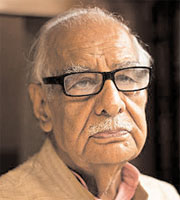
NEW DELHI:
Low-cost carrier SpiceJet on Wednesday placed an order for 42 Boeing 737 Max aircraft at a list price of $4.4 billion. The airline swapped existing orders for 12 Boeing 737 aircraft for the next-gen avatar of the plane, which the US aircraft major announced after Airbus came up with the thriftier A-320 neo (new engine option) of its popular A-320s. The delivery of the new planes will begin from 2018 and SpiceJet, India‘s second largest LCC, will use the sale and lease-back model to finance their acquisitions.
The deal was announced at the ongoing Hyderabad air show. Ficci, which is among the organizers of the air show, described it as the “biggest deal in the aviation history of India… between Indian budget airline, SpiceJet and Boeing”. “SpiceJet greatly values the ties we have built over the years with Boeing. The Boeing Next-Generation 737 aircraft, the mainstay of the fleet ever since SpiceJet started operations, have vindicated our choice by their endurance, reliability and cost effectiveness,” said S L Narayanan, CFO of Sun Group, the parent company of SpiceJet.
Boeing senior VP (Asia Pacific and India sales) Dinesh Keskar said: “The order is a tremendous endorsement of the 737 MAX’s unsurpassed fuel efficiency. The capabilities of the 737 MAX support SpiceJet’s mission to become India’s preferred low-cost airline.” The 737 MAX brings advanced engine technologies to the aircraft. It incorporates the latest-technology CFM International LEAP-1B engines to deliver the highest efficiency, reliability and passenger comfort in the single-aisle market.
With the latest deal, SpiceJet has ordered 90 airplanes directly from Boeing, which includes the 737-800, 737- 900ER and now the 737 MAX. The low-cost airline has so far taken delivery of 31 planes. The LCC opted for a fuel efficient version of the B-737 as part of its recent endeavor to fly out of red, something which has proven to be elusive so far. The Centre for Asia Pacific Aviation estimates SpiceJet to report a record full-year loss of about Rs 1,186 crore in 2013-14 — equal to the combined losses incurred from 2007 to 2013.





Be the first to comment